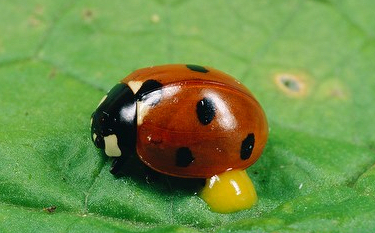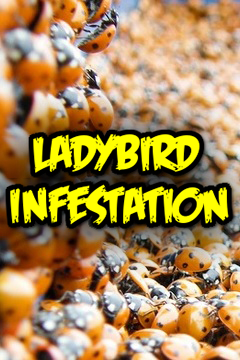Poisonous Ladybirds

The bright colours of Ladybirds would seem to be a good indication, to potential prey, that they are poisonous. This is called Aposematism and is justified in many animals and insects, but rather than a deadly poison the Ladybird uses, what is known as, ‘reflex bleeding’. This allows them to release a toxin, which is alkaloid based, through the joints in their exoskeleton when threatened. This reaction can be found in larval and adult beetles and they can also feign death.
Ladybird Toxin
Spots of toxin can appear from the Ladybird body, often as a yellow substance because their blood has no haemoglobin. This defence has been shown to be especially effective against ants. Some ladybirds also produce a type of insect repellent in this excretion and there is a evidence to show that locality can effect this toxic mix as some ladybirds excrete additional chemicals found in local foliage.
Reflex Bleeding
Reflex Bleeding is also known as Autohaemorrhaging and can be found in a range of other insects, lizards and snakes.

